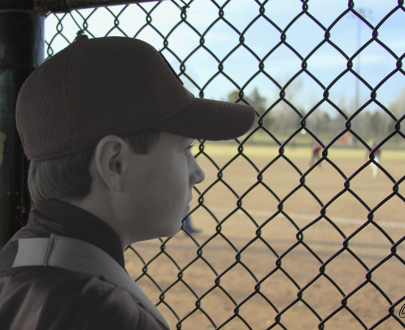 Find the golden opportunity for children and youth to learn more about stress, not by lecture, but in conversation. Use the following 8 questions[1] as conversation starters to explore the topic and create an opportunity to listen to the experiences of the children and youth in your life. Ask questions in a private conversation, in a group or as a journal prompt in a relaxed, low-stress atmosphere.
Find the golden opportunity for children and youth to learn more about stress, not by lecture, but in conversation. Use the following 8 questions[1] as conversation starters to explore the topic and create an opportunity to listen to the experiences of the children and youth in your life. Ask questions in a private conversation, in a group or as a journal prompt in a relaxed, low-stress atmosphere.
Being “stressed-out” can be confusing, scary, and isolating, but stress isn’t all bad. Some stress is actually a good thing! It is essential for our survival and protects us from danger with a burst of extra energy triggered in the flight or fight response. Too much, chronic and unmanaged stress, however, is not healthy and may be caused by a variety of triggers depending on age[2].
Use the following 4 questions to de-emphasize negative views and help kids constructively identify their own signs of stress[3].
-
What would happen if we were totally stress-free?
-
What causes[4] you to stress out?
-
How do you know that your stress level is high? What are your personal stress signs[5]?
-
If you could talk to your stress...what would you tell it about what you like and don’t like about it?
People manage stress in different ways. Finding what works for an individual takes some experimentation and self-awareness. The final 4 questions help children and youth reflect on their own experiences in order to discover and develop personal coping strategies. The links provide further background information.
-
What is a healthy way[6] you deal with stress?
-
What are unhealthy coping choices[7] you see in yourself or other people?
-
Share a time when you helped someone else who was stressed-out. What did you learn from that experience about yourself and others?
-
Sometimes it takes courage to cope through life’s challenges. Imagine that courage was a color. What color would your courage be?
Caring adults will learn a lot during these conversations and the information may be useful during times of high stress and anxiety. Remind children how to recognize their own stress and offer support for them to practice their self-management strategies. And remember, stress is contagious. When you are helping your child manage their worries and stress ask yourself if you are also stressed. If you are, then maybe you can use some of these strategies to remain calm and present because calm is contagious too!
These questions were inspired by:
- Generation Stressed, written by Michele Kambolis
- Centre for Studies on Human Stress
- Anxiety BC - youth
School age children are particularly sensitive to what happens at home including any family conflict, struggle with poverty or parental anxiety. These situations may amplify a stress trigger for young children.
Adolescents (12-18 years), while still impacted by what is happening at home, are also highly sensitive to situations connected with friendships and popularity.
Common signs of stress include:
- Problems sleeping (this may indicate worry)
-
Changes in behaviour (for example a calm child who becomes agitated and vice-versa)
-
Very strong emotional outbursts
-
Difficulty with learning and memory (when a child is stressed they have a hard time focusing and distinguishing between what is relevant and not relevant)
-
Hyperactive behaviours (think fight and flight!)
-
Frequent colds and flus (this may be a sign of a low immune system)
-
Changes is hunger, appetite and digestion
-
Muscle tension and headaches
Preschoolers: animals, the dark and separation.
School-age children: performance in school or sports, family issues and friends.
Adolescence: social, existential, future issues.
Look in the following areas signs of stress:
- physical health including problems sleeping, frequent illness (this may be a sign of a low immune system), changes is hunger, appetite and digestion or muscle tension and headaches
- changes in behaviour (for example a calm child who becomes agitated and vice-versa), very strong emotional outbursts and hyperactivity
- difficulty with learning and memory (when a child is stressed they have a hard time focusing and distinguishing between what is relevant and not relevant)
People will find stress relief in different ways. Common (but not universal) strategies include;
- breathing
- visualization
- knitting
- physical play
- listening to music
- talking with someone
Examples might include:
- alcohol abuse
- smoking a lot
- constant gum chewing
- grinding teeth
- overeating or not eating
- being very critical of other people
- lots of time in front of the TV, computer, or video games
- can’t get things done
- takes risks that can have negative consequences
- sleeping too much or too little